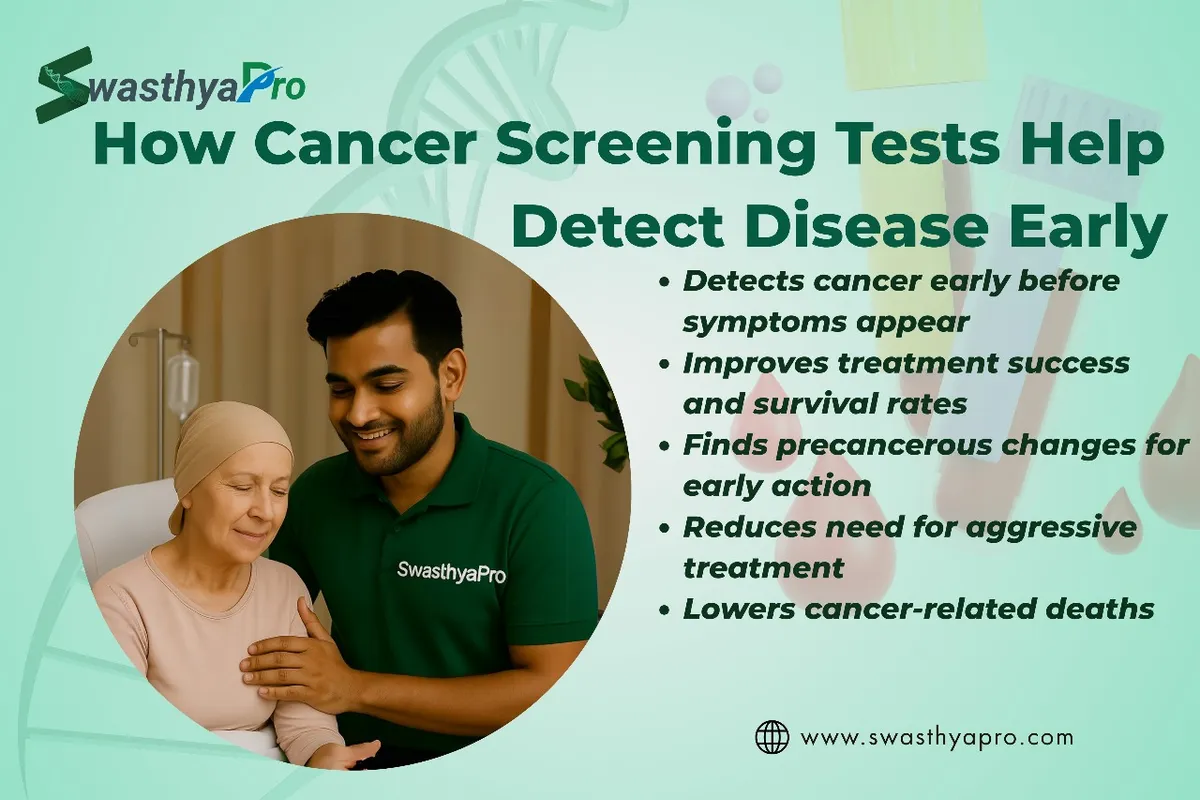Cancer screening test for early detection: why timing matters more than symptoms

When it comes to cancer, early detection can mean the difference between a simple treatment and a life-threatening battle. Yet, many people still wait for symptoms to appear before taking action. A cancer screening test can detect signs of cancer before symptoms even start — and that’s where its true power lies.
What is a cancer screening test?
A cancer screening test is a medical check designed to find early signs of cancer in people who don't yet have symptoms. These tests don’t diagnose cancer directly but help identify abnormal growths or changes in the body that could lead to cancer if not addressed.
Regular cancer screening tests help catch the disease at its earliest stage — when it's most treatable and often curable.
Why early detection is so important
Cancer often grows silently. By the time you notice pain, fatigue, or visible lumps, it may have already advanced. That’s why relying only on symptoms is risky.
A timely cancer screening test can:
- Spot abnormalities when they’re small and haven’t spread
- Allow for quicker, less aggressive treatment
- Dramatically increase survival rates
- Reduce treatment costs and emotional distress
For example, breast cancer detected early through a mammogram has over a 90% survival rate. The same goes for colon cancer caught during a routine colonoscopy. That’s how powerful a cancer screening test can be.
Common types of cancer screening test
Different cancers require different types of cancer screening test. Here are some of the most widely recommended:
- Mammogram: Used to screen for breast cancer, especially in women over 40.
- Pap smear & HPV test: Help detect cervical cancer in women.
- Colonoscopy or stool tests: Used for colon cancer screening, generally after age 45.
- Low-dose CT scan: Recommended for heavy smokers to detect lung cancer.
- PSA blood test: Screens for prostate cancer in men, especially over 50.
These tests are usually painless or mildly uncomfortable but can make a massive difference in outcomes.
When should you get a cancer screening test?
Timing is key. Don’t wait for symptoms or a “bad feeling.” Health experts suggest scheduling a cancer screening test based on your age, gender, family history, and lifestyle.
Here’s a general guide:
- Women over 40: Annual mammograms and Pap smears as per doctor’s advice
- Men over 50: Prostate and colon cancer screenings
- Anyone with family history: Start screenings earlier — sometimes 10 years before the age your relative was diagnosed
- Smokers (current or past): Lung cancer screenings starting around age 50
If you're unsure, talk to your doctor. One conversation could lead to a cancer screening test that changes everything.
Is a cancer screening test safe?
Yes. Most cancer screening tests are non-invasive or minimally invasive. They’re designed to be quick, safe, and effective. While no test is perfect, the benefits far outweigh any temporary discomfort.
Modern technology has made cancer screening tests more accurate, faster, and widely available. Blood-based screenings, advanced imaging, and genetic markers are also becoming common tools in early detection.
The emotional side: fear vs facts
It’s normal to feel scared about getting a cancer screening test. Many people avoid it because they’re afraid of what it might find. But fear doesn’t protect you — awareness does.
Most screenings will come back normal. And if something abnormal is found, early treatment options are usually less aggressive and more successful. That’s why doing a cancer screening test should be seen as an act of strength, not fear.
Final thoughts
A cancer screening test is not something you wait for — it’s something you schedule before there's a problem. It’s the quiet checkpoint that protects your future. The earlier you test, the more choices you have.
Don’t wait for symptoms to remind you that health matters. Be proactive. Talk to your doctor. Book that cancer screening test. It could save your life — or the life of someone you love.